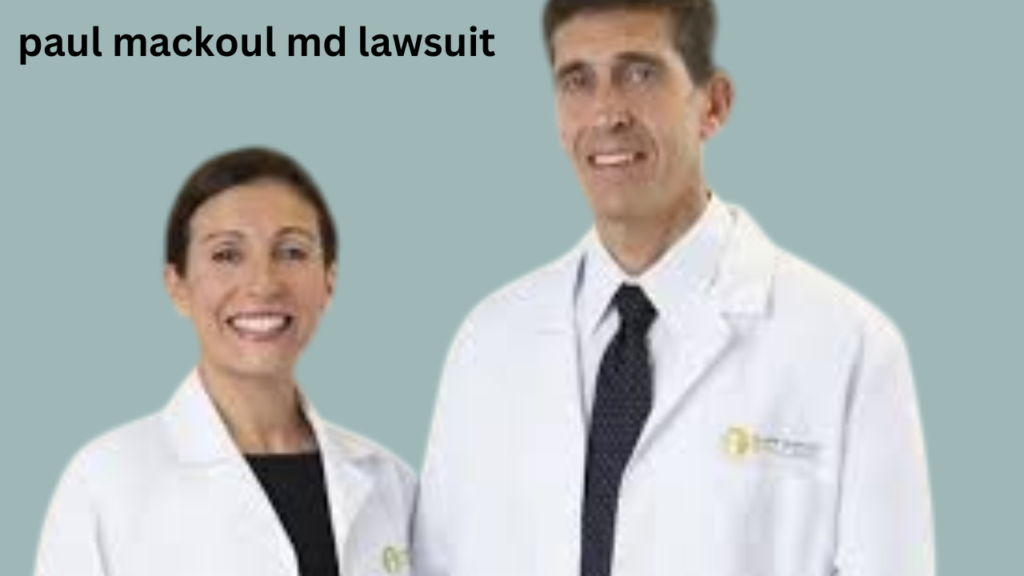Paul Mackoul, MD, a renowned gynecologic surgeon specializing in minimally invasive procedures, has been the subject of scrutiny due to various lawsuits and disciplinary actions. The controversies surrounding his medical practices raise significant questions about the ethical standards and practices in healthcare. This article delves into the allegations against Dr. Mackoul, their implications, and the broader lessons for the medical community.
Allegations Against Dr. Mackoul
Overutilization of Healthcare Services
One of the primary accusations against Dr. Mackoul pertains to the overutilization of Ethibond sutures during hysterectomies. Ethibond sutures, being non-absorbable, are not typically necessary in such procedures. Allegations suggest that this practice led to complications requiring additional surgeries to remove the sutures. Critics argue that this unnecessary utilization not only increased healthcare costs but also subjected patients to undue stress and physical discomfort.
Performing Unnecessary Biopsies
Another serious accusation involves conducting unnecessary biopsies. Reports claim that Dr. Mackoul performed these procedures without valid medical justification and subsequently billed for them without submitting the tissue samples for evaluation. Such actions, if proven true, highlight significant lapses in medical ethics and patient care.
Lack of Certification in Specialized Procedures
In a particularly tragic case, a patient’s death was attributed to Dr. Mackoul’s installation of a catheter—a procedure he was allegedly not certified to perform. The patient’s family filed a lawsuit citing medical negligence. This incident underscores the critical importance of adhering to certification and training requirements in the medical field.
Unprofessional Conduct
Dr. Mackoul has also faced disciplinary action for unprofessional conduct. Allegations include poor communication with patients and inadequate attention to their concerns, further eroding trust in his practice.

Legal and Professional Consequences
The lawsuits and disciplinary actions against Dr. Mackoul have had a profound impact on his professional reputation and practice. These cases highlight the necessity for robust oversight in the medical community to ensure that patient welfare remains paramount. While the outcomes of these legal proceedings are determined by the courts, the allegations alone have raised public awareness about potential pitfalls in medical ethics and practice standards.
Implications for Patient Care
The controversies surrounding Dr. Mackoul serve as a cautionary tale for both healthcare professionals and patients. For medical practitioners, these incidents emphasize the importance of maintaining ethical standards, adhering to certification requirements, and prioritizing patient welfare over financial incentives. For patients, they underscore the need to seek second opinions and remain vigilant about their medical care.
Broader Lessons for the Medical Community
The allegations against Dr. Mackoul highlight systemic issues within the healthcare system, such as the lack of stringent monitoring mechanisms and the potential for ethical lapses. Addressing these challenges requires:
- Stronger Regulatory Oversight: Regulatory bodies must enhance monitoring and enforcement to ensure compliance with medical standards.
- Transparency in Medical Practices: Healthcare providers should adopt transparent practices to build patient trust.
- Patient Empowerment: Patients should be encouraged to actively participate in their healthcare decisions and question procedures they find unclear.
Also Read: UConn Student Dies in Parking Garage: A Campus in Mourning
Deduction
The legal and ethical controversies surrounding Paul Mackoul, MD, underscore critical challenges in modern healthcare. While the allegations against him are serious, they also provide an opportunity for the medical community to reflect on its practices and implement reforms to prevent similar issues in the future. Ensuring ethical standards and patient-centered care should remain the cornerstone of the medical profession, fostering trust and accountability at every level.




































Comments 1